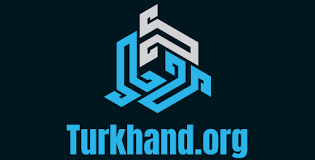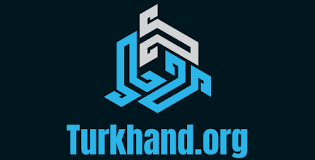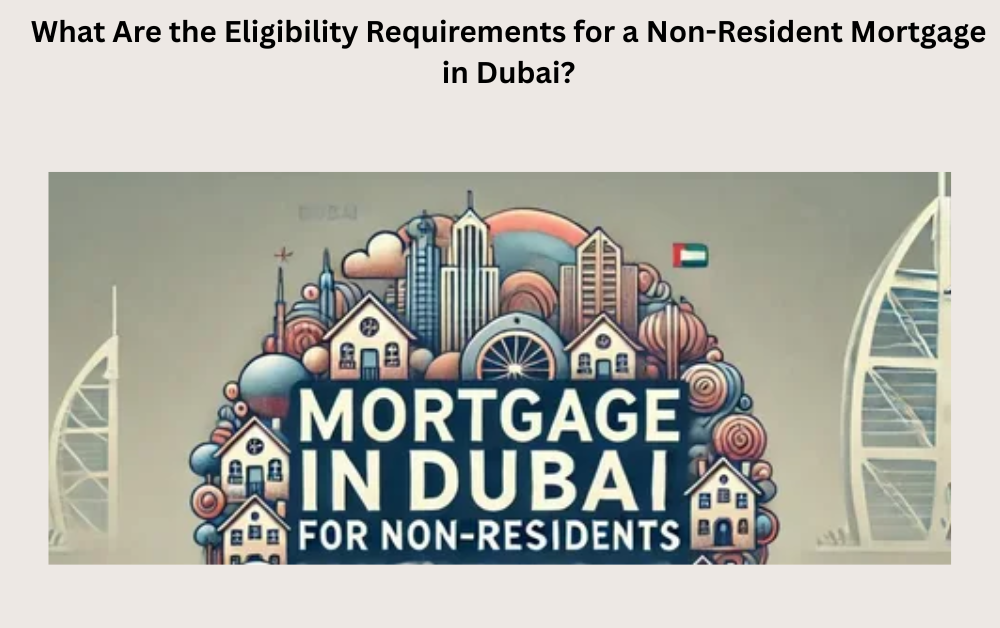Buying property in Dubai is a dream for many people around the world. The city's modern lifestyle, strong real estate market, and stable economy make it one of the best places to invest in property. But what if you are not living in the UAE? Can you still get a home loan or mortgage? The good news is — yes, you can.
Dubai offers special mortgage options for non-residents, meaning people who live outside the UAE can still buy property with the help of banks and financial institutions. However, there are some rules and eligibility conditions that you need to know before applying.
This blog explains in simple words what the eligibility requirements are for a non-resident mortgage in Dubai , what documents you need, and how to make the process easier.
Note: Discover how Mortgage in Dubai for Non-Residents makes property ownership simple and achievable for international buyers. Learn about eligibility, loan options, and easy steps to finance your dream home in Dubai, even if you live abroad.
Understanding Non-Resident Mortgages in Dubai

A non-resident mortgage is a type of home loan offered to people who do not live in the UAE full-time. These loans are designed for overseas investors, expatriates, and foreign citizens who want to buy property in Dubai but do not have a UAE residence visa.
Dubai's real estate laws allow foreigners to own properties in freehold areas. This means that even if you are not a UAE resident, you can still buy an apartment, villa, or townhouse with your name on the title deed.
Non-resident mortgages make this process simpler by allowing you to borrow a percentage of the property's price and pay it back through monthly installments.
Who Qualifies as a Non-Resident?
Before applying, it's important to understand who the banks consider as a non-resident.
You are a non-resident if:
-
You live outside the UAE.
-
You do not hold a valid UAE residence visa.
-
You do not spend more than 183 days a year in the UAE.
In simple terms, if you are living in another country but want to invest or buy a home in Dubai, you fall under the non-resident category.
Basic Eligibility Requirements for Non-Resident Mortgages
Every bank in Dubai has its own set of rules and policies. However, most of them follow similar requirements when it comes to non-resident mortgage eligibility. Let's look at the main ones below.
1. Minimum Age Requirement
You must be at least 21 years old to apply for a home loan. The maximum age usually allowed is between 65 to 70 years by the time your loan finishes.
2. Stable Source of Income
Banks need to make sure that you can pay back the loan comfortably. You must have a regular and verifiable source of income, such as a salary or business revenue.
3. Minimum Income Requirement
Most banks in Dubai require non-residents to have a minimum monthly income of AED 15,000 to AED 25,000 (or an equal amount in your home currency). The higher your income, the better your chances of approval.
4. Employment or Business Stability
If you are employed, you should have been working with your current employer for at least 6 to 12 months.
If you are self-employed, your business should have been running successfully for at least two years.
5. Good Credit History
Banks will check your credit score in your home country. A clean record with no defaults, unpaid loans, or delayed credit card payments increases your approval chances.
Documents Needed for Non-Resident Mortgage
To make the process smooth, you should prepare all the necessary documents in advance. These documents help banks verify your identity, income, and financial situation.
Here's what you will generally need:
-
Copy of your valid passport.
-
Proof of address in your home country (like a utility bill or rental contract).
-
Latest 6 months' bank statements.
-
Salary certificate or payslips (for employees).
-
Business license or company registration certificate (for self-employed).
-
Tax return or financial statement (if available).
-
Sale agreement or title deed of the property you plan to buy.
If your documents are not in English or Arabic, some banks may ask for official translations.
Loan Amount and Down Payment Rules
Non-resident mortgages in Dubai usually come with a loan-to-value (LTV) ratio between 60% and 70%. This means that the bank will cover up to 70% of the property's value, and you'll need to pay the remaining 30% or more as a down payment.
For example:
If you are buying a property worth AED 1 million, the bank may lend AED 650,000. You will have to pay AED 350,000 as a down payment.
Keep in mind that the down payment must come from your personal account and be supported by clear financial records.
Property Type and Location Eligibility
Not all properties in Dubai qualify for non-resident mortgages. Banks usually offer loans for freehold properties, which are located in areas approved for foreign ownership.
Some popular areas include:
-
Downtown Dubai
-
Dubai Marina
-
Palm Jumeirah
-
Jumeirah Village Circle (JVC)
-
Business Bay
-
Arabian Ranches
-
Dubai Hills Estate
Off-plan properties (under construction) may not always be approved by banks for non-residents. Ready-to-move properties are preferred since they carry lower risk.
Employment Type and Its Effect on Eligibility
Your employment type also affects your eligibility and loan terms.
For Salaried Employees:
-
Must work for a reputed company (locally or internationally).
-
Should have a minimum of two years of total work experience.
-
Must provide proof of income and employment continuity.
For Self-Employed Individuals:
-
Should have a registered and active business for at least two years.
-
Must show company bank statements and financial stability.
-
Need to provide official business registration or trade license documents.
Banks are more confident lending to applicants with consistent income and long-term business or job stability.
Interest Rates for Non-Resident Mortgages
Interest rates for non-residents in Dubai are slightly higher than those for residents. This is because lending to non-residents carries a bit more risk.
There are two main types of interest rates you can choose from:
Fixed Rate:
The interest rate stays the same for a set period (usually 1 to 5 years). It gives you stable and predictable monthly payments.
Variable Rate:
The interest rate changes depending on the Emirates Interbank Offered Rate (EIBOR). It can increase or decrease based on market conditions.
Most non-residents prefer fixed rates for the first few years because it makes budgeting easier.
Additional Costs to Consider
While planning your mortgage, remember to include extra costs apart from your down payment and monthly installments. Some common charges include:
-
Property valuation fee
-
Mortgage processing fee (around 1% of the loan amount)
-
Property registration fee (4% of property value)
-
Life and property insurance costs
-
Currency conversion or international payment charges
Being aware of these costs helps you plan your budget better and prevent financial surprises later.
Credit History and Its Importance
Your credit score plays a huge role in getting your mortgage approved. A strong credit history shows banks that you manage your finances well.
Here's how to maintain a healthy credit record:
-
Pay all credit card bills on time.
-
Avoid missing loan or EMI payments.
-
Keep your debt-to-income ratio low.
-
Don't apply for too many loans at once.
A high credit score not only increases your chances of approval but can also get you lower interest rates.
Currency and Repayment Options
Most Dubai mortgages are offered in UAE dirhams (AED), but some banks allow non-residents to make payments in USD, GBP, or EUR.
However, you must remember that currency exchange rates can affect the amount you pay each month. If your income currency becomes weaker than the dirham, your installment amount might rise slightly.
It's always a good idea to discuss currency options and repayment flexibility with your bank before finalizing the loan.
Tips to Improve Your Mortgage Approval Chances
If you want to improve your chances of getting approved for a non-resident mortgage in Dubai, here are some useful tips:
-
Maintain a good credit score in your home country.
-
Show consistent and traceable income.
-
Keep your debt levels low.
-
Choose ready properties in prime freehold areas.
-
Save enough funds for down payments and related costs.
-
Submit all documents in the proper format to avoid delays.
-
Work with an experienced mortgage advisor or consultant to guide you through the process.
Benefits of Getting a Non-Resident Mortgage in Dubai
There are several advantages to getting a non-resident mortgage in Dubai:
-
You can own property in a high-growth global market.
-
You don't need to pay the full property price upfront.
-
You can enjoy rental income if you're buying for investment.
-
You build financial stability with a valuable real estate asset.
-
You can take advantage of Dubai's tax-free property ownership benefits.
Dubai's banking system is known for being secure, transparent, and efficient, which gives non-residents peace of mind.
Things to Avoid When Applying for a Mortgage
To make your mortgage journey smooth, avoid the following mistakes:
-
Providing incomplete or unclear documents.
-
Applying for multiple loans at the same time.
-
Ignoring the importance of credit score.
-
Choosing properties that are not eligible for non-resident ownership.
-
Underestimating extra costs like insurance or registration fees.
Staying organized and informed will help you avoid delays and improve your chances of approval.
Conclusion
Owning property in Dubai as a non-resident is no longer a complicated dream. With the right information, preparation, and eligibility, you can successfully secure a non-resident mortgage in Dubai and invest in one of the world's most exciting real estate markets.
Understanding the eligibility requirements for a non-resident mortgage in Dubai — such as income proof, credit score, down payment, and property type — helps you plan better and make smart financial choices.
Whether you want to buy a vacation home, an investment property, or a retirement villa, Dubai offers a safe and rewarding opportunity for non-residents to achieve their property goals.



